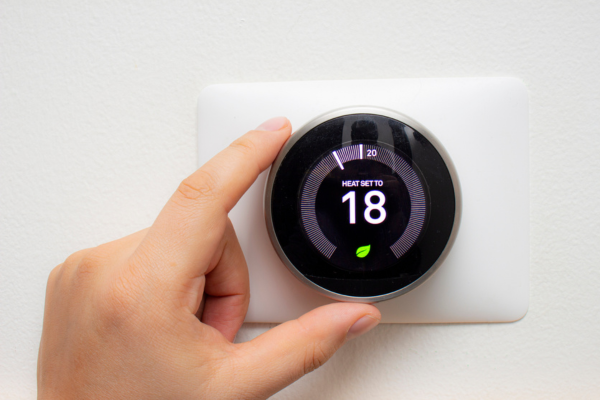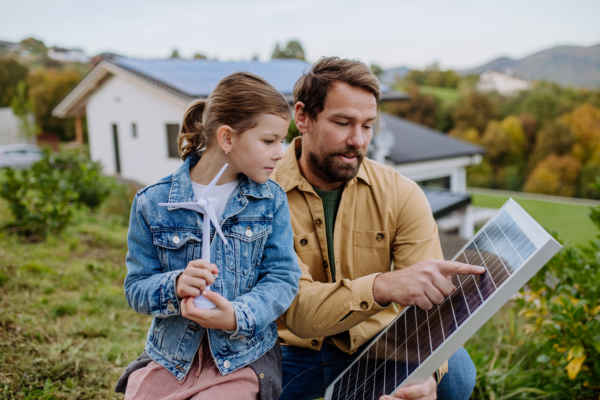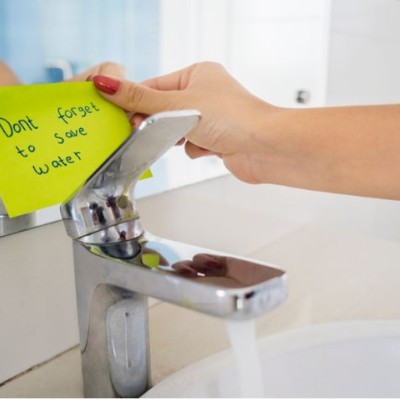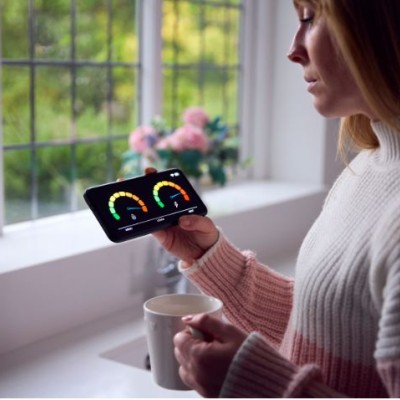Save energy at home: A few practical tips

Saving energy at home not only helps reduce your utility bills but also benefits the environment by lowering greenhouse gas emissions. Whether it's the chilly winter or the scorching summer, there are various ways to conserve energy throughout the year. In this article, we'll explore ten top tips to save energy at home.

1. Embrace Smart Thermostats: Investing in a smart thermostat is a savvy way to control your heating and cooling systems efficiently. During colder months, program your thermostat to lower the temperature when you're away or asleep, and raise it when you return or wake up. In the summer, do the opposite and set the thermostat to a higher temperature when you're not at home. The Energy Saving Trust (www.energysavingtrust.org.uk) offers advice on choosing and using smart thermostats effectively to save energy and money.
2. Optimise Lighting: Replace traditional incandescent bulbs with energy-efficient LED or CFL bulbs. LED bulbs are not only more energy-efficient but also last much longer, saving you money on replacements. Additionally, be mindful of turning off lights when not in use, regardless of the time of year. The Energy Saving Trust's Lighting Guide (www.energysavingtrust.org.uk/lighting) provides comprehensive advice on energy-efficient lighting choices and usage.
3. Insulate Your Home: Ensure your home is properly insulated to prevent heat loss during winter and reduce heat gain in summer. Seal any drafts around windows and doors, and consider adding insulation to your attic and walls. In warmer months, use fans and ventilate your home during cooler evening hours to maintain a comfortable indoor temperature without relying heavily on air conditioning. The UK government's Simple Energy Advice (www.simpleenergyadvice.org.uk) offers tailored recommendations for improving insulation and energy efficiency in your home.
4. Manage Appliance Usage: Be mindful of the energy consumption of your household appliances, especially during peak times. In the UK, peak times typically occur during the evening when demand is high. Consider running appliances like washing machines, dishwashers, and ovens during off-peak hours to take advantage of cheaper energy rates. The Energy Saving Trust's Appliances and Electronics page (www.energysavingtrust.org.uk/appliances-and-electronics) provides tips on using appliances efficiently and saving energy.

5. Harness Natural Light: In the bright summer days, take advantage of natural light by keeping curtains and blinds open during daylight hours. This reduces the need for artificial lighting and helps keep your home cooler. Conversely, during the darker winter months, close curtains and blinds at night to retain heat and minimise heat loss through windows. Visit the Centre for Sustainable Energy (www.cse.org.uk) for tips on optimising natural light and improving energy efficiency in your home.
6. Be Mindful of Water Heating: Heating water accounts for a significant portion of your energy bill. Lower the temperature setting on your water heater to save energy, especially during the summer when hot water demands are generally lower. In colder months, insulate your water heater to prevent heat loss and conserve energy. The Energy Saving Trust's Water Heating Guide (www.energysavingtrust.org.uk/water-heating) offers advice on reducing water heating costs and improving efficiency.
7. Unplug Electronics and Chargers: Many electronic devices and chargers continue to draw power even when they're not in use. Unplug them when they're fully charged or not being used to eliminate this "phantom" energy usage. This simple habit can lead to noticeable energy savings over time. The UK government's Energy Consumption in the Home guide (www.gov.uk/government/publications/energy-consumption-in-the-home) offers tips on reducing energy waste and phantom loads.
8. Sustainable Transport: If you have an electric car, consider sustainable ways to charge it. Opt for renewable energy providers that supply electricity from renewable sources like wind and solar power. Additionally, charge your car during off-peak hours to take advantage of lower energy rates. The Energy Saving Trust's Electric Vehicle Charging Guide (www.energysavingtrust.org.uk/electric-vehicles) provides advice on charging electric vehicles sustainably and efficiently.
9. Energy-Efficient Appliances: When purchasing new appliances, look for energy-efficient models with high Energy Efficiency Ratings (EER) or Energy Labels. These appliances are designed to consume less energy and can lead to significant savings over time. The Energy Saving Trust's Energy Labels Guide (www.energysavingtrust.org.uk/energy-labels) explains how to interpret energy labels and make informed decisions when buying appliances.

10. Educate and Involve the Family: Encourage everyone in your household to be mindful of energy usage. Teach kids and family members about the importance of energy conservation and involve them in energy-saving practices, such as turning off lights and unplugging devices when not in use.
By incorporating these energy-saving tips into your daily routine, you can make a positive impact on both your energy bills and the environment. Be mindful of the changing seasons and adjust your energy-saving strategies accordingly. Saving energy at home is a collective effort that, when adopted by many, can have a significant effect on reducing overall energy consumption in the UK.
This blog was provided by Green The UK, our partner for conservation and restoration projects.
Looking for advice?
If you're looking to let or sell your property, we can help. Get in touch with your local branch or book in for a property valuation.

Contact Us
Got a question, general enquiry or something else?
You may also like
Since we started in 1987 we have grown to one of the UK’s largest property groups, we can save you time and money by offering a range of services and expertise under one roof.



